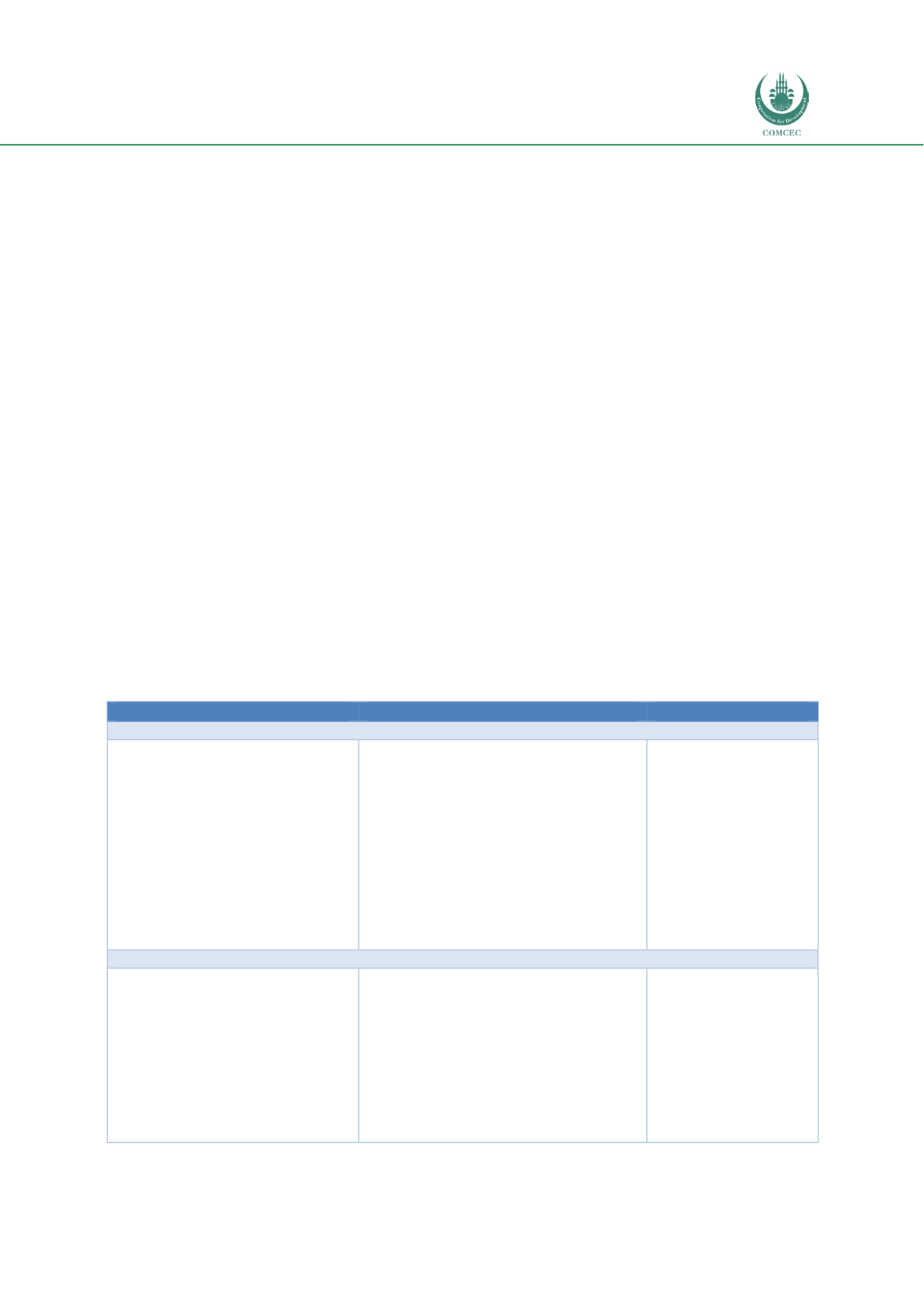

Infrastructure Financing through Islamic
Finance in the Islamic Countries
123
opportunity, both the Islamic banking and the Islamic Capital Market sectors are being
challenged by some fundamental issues which limit their active participation in the financing
scheme. For the sectors to fully benefit, the regulatory authorities need to come up with some
suitable policy actions.
The Islamic banking sector is relatively new and small in the country. With assets of only
0.28% of the overall banking sector, Islamic banks are not able to contribute to infrastructure
projects which require large amounts of investments. The regulatory limits on exposures for
banks inhibit Islamic banks from investing in large infrastructure projects. Furthermore,
Nigeria does not have an active Islamic money and interbank market, and this also discourages
Islamic financial institutions from investing in assets with long-term maturities as it creates
liquidity risks.
While Nigeria has issued a number of sukuk to finance infrastructure projects, the issuance has
not been frequent. Furthermore, the NICMP Master Plan has identified additional challenges
that are militating against the development of the sukuk market which includes awareness and
knowledge gaps, limited legal and regulatory framework, dearth of market players, product
deficit and the lack of a secondary market. Although some states in Nigeria have enacted
enabling laws on waqf, its use for social infrastructure services has been insignificant. The
challenges facing the sector are dominance by informal activities and the size of the funds
being very small.
Although Islamic finance is relatively new in Nigeria, Table 4.3.5 outlines the issues and
recommendations that can further enhance its role in infrastructure development in the
country.
Table 4.3. 5: Issues and Policy Recommendations: Nigeria
Issues
Recommendations
Implemented by
Infrastructure Related Strategies and Policies
Islamic finance is relatively new in
Nigeria and PPP contracts are
novel and complex for most
stakeholders.
Islamic banks are small and
infrastructure investments are
deemed too risky for them.
Develop
Shariah-compliant
contract
templates that can be used for different
types of PPP projects
Expand the scope of guarantees and
insurances to cover risks such as political
risks and partial credit risks in a Shariah-
compliant manner to encourage Islamic
financial institutions to participate in
infrastructure projects.
Infrastructure
Concession
Regulatory
Commission (ICRC)
Islamic financial
industry stakeholders
Relevant public bodies
Private sector
insurance/takaful
companies
Legal and Regulatory Regimes
The laws for Islamic banking,
takaful and capital markets/sukuk
are incorporated in the existing
financial laws.
Islamic bank contribution to
infrastructure development can
also be enhanced by jointly funding
the projects with other banks
through syndicated financing.
Enact specific Islamic financial laws to
provide a sound legal and regulatory
basis for the development of the Islamic
financial industry in Nigeria.
Create a sound legal and contractual
framework for Islamic bank participation
in syndicated financing in infrastructure
projects with both Islamic and
conventional banks.
Relevant government
ministries.
Relevant government
ministries.
















